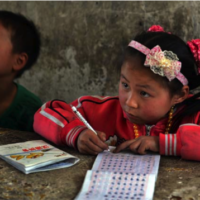China Promotes Teaching in Rural Schools
China’s most experienced teachers now have more incentives to teach in the country’s remote and rural schools. New guidance issued this week by the Ministry of Education makes teaching for more than one school year in a rural school a prerequisite for rising to the level of senior professional teacher on China’s career ladder. Teaching for at least three years in rural schools will now count favorably toward teachers who apply to be school principals. In addition, future funding allocations for performance bonuses for teachers will be prioritized for rural schools. Read more at China Daily.

Ontario Announces Investments in Learning Recovery

Ontario Minister of Education Stephen Lecce announced a Learning Recovery Action Program for the coming year which includes CAN$175 million (US$140 million) in afterschool, weekend and summer tutoring starting this month through the end of December and CAN$15 million (US$12 million) for summer programming, including programs for students with special learning needs and First Nations students living on reserves. Lecce also announced an expansion of teacher-led, one-on-one digital tutoring, using its existing Mathify and French-language Eureka platforms, and new investments in reading intervention programs for young children who are struggling with reading. These learning recovery programs were accompanied by other new investments in student mental health, STEM programming, and expanded access to programs to prepare students for “jobs of tomorrow.” For more, see Ontario Newsroom.
Australia Releases New National Workforce Strategy

Australia’s National Workforce Strategy 2022-2027 introduces a nationwide framework to guide workforce development to ensure alignment with economic growth and address barriers to participation as well as improve employment opportunities for skilled migrant workers. It includes five guiding principles: using data to make decisions about the current and future workforce; equipping Australians with in-demand skills and focusing employment services on outcomes; removing barriers and disincentives to work; activating industry to design and drive change; and targeting migration to fill skills and labor gaps. The strategy is meant to set Australia up for strong economic growth in the medium- to long-term in the wake of disruptions from the COVID-19 pandemic and will be used by national, state, and local government agencies when developing their own workforce strategies. As a first step, the federal government has recently invested AUD$20 million (US$15 million) in the Migrant Skills Incentive which provides eligible skilled migrants with targeted employment supports, including assistance with skills assessments applications and job searches; eligibility is based on the National Skills Commission’s Skills Priority List, published in June 2021. Read more at Australia’s Department of Education, Skills, and Employment website.
British Columbia to Review Funding of Post-Secondary Education
British Columbia is launching its first review in 20 years of how post-secondary institutions in the province are funded. Its goals are to ensure fairness in how public resources are distributed to the institutions; align funding with the education and training needs of the province; and make education affordable for students. The first phase of the review, which will involve gathering feedback from partners and stakeholders, will be completed by summer 2023. The second phase, which will be led by the Ministry of Advanced Education and Skills Training, will consider new models for funding. The review comes after years of complaints about the inequities in funding among institutions, particularly underfunding of more remote ones, and rising costs for students. Federation of Post-Secondary Educators of B.C. president Brent Calvert said the review “…is welcome news” as “education has changed at the post-secondary level quite significantly.” For more, see CBC Canada.





